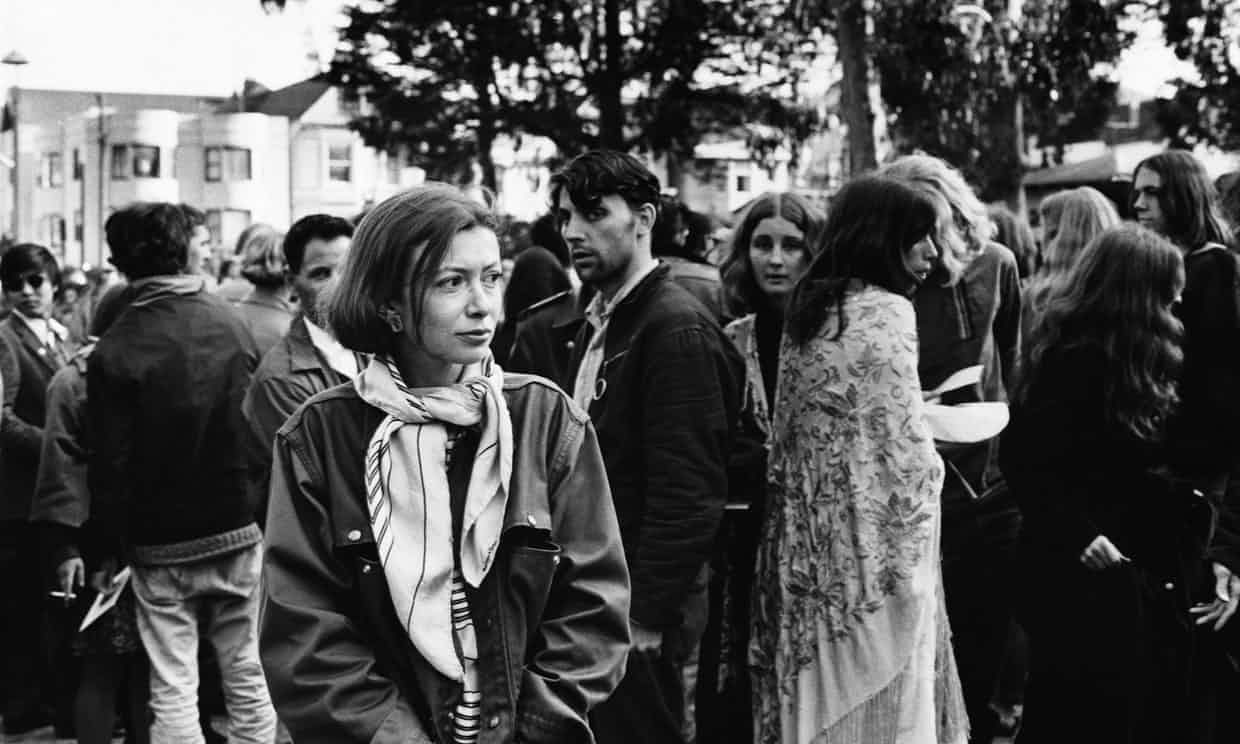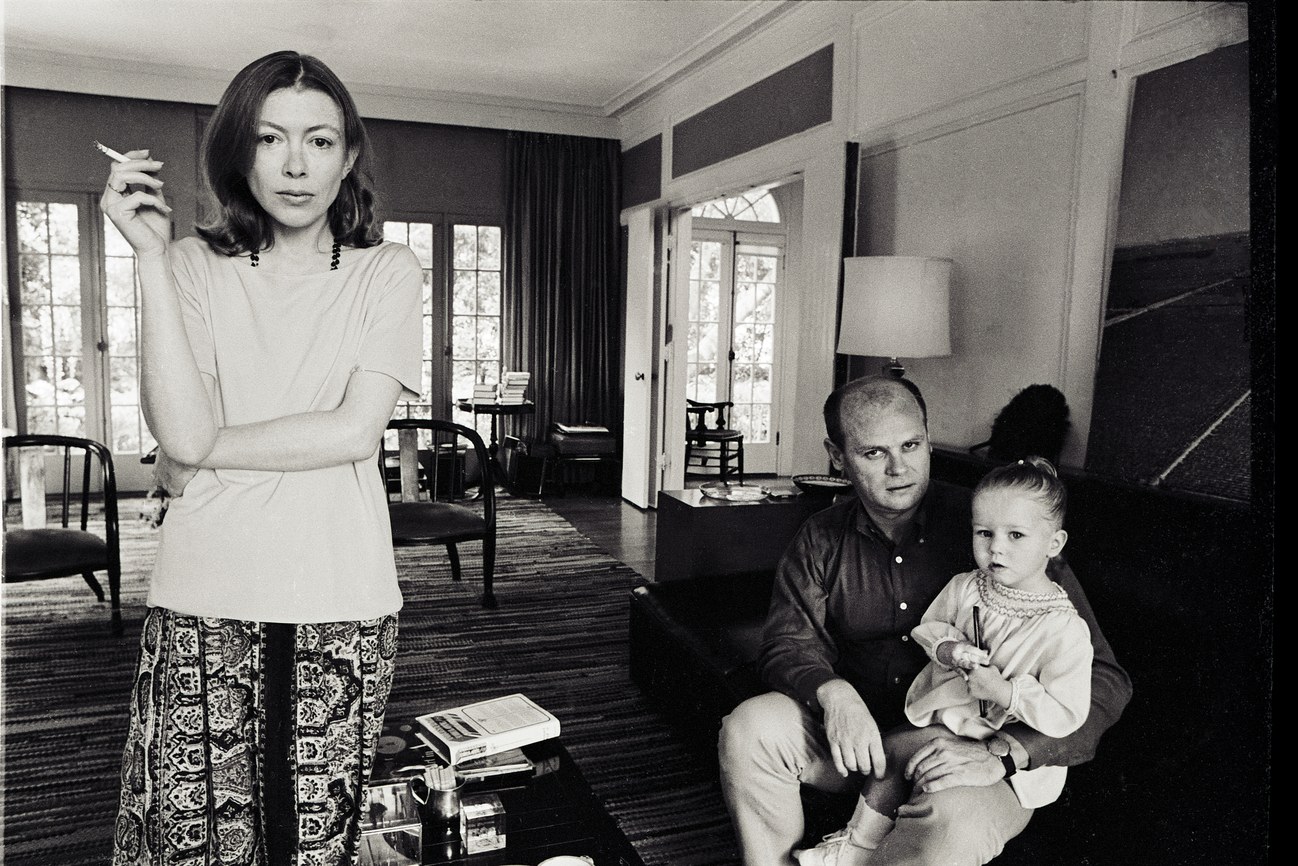Photograph by Julian Wasser / Netflix
If you tuned into the Netflix Doc, “Joan Didion: The Center Will Not Hold,” there were some tearful moments, some revelations about her relationship to her dad and her husband John Gregory Dunne, but there are also some moments that we took as career inspo.
Here are our five faves.
1. Everyone takes their lumps in the beginning. But those who stick with it persevere.
After graduating from UC Berkeley, Didion traveled to New York to work for Vogue. As fellow editor, Phyllis Rifield, explains in the doc, “it would be exciting because it was the pre-eminent fashion magazine.”
“You didn’t have the luxury of writing and writing and writing,” Rifield shares, bringing up Didion’s editor.
“I remember she would have this big aquamarine ring,” Didion says in the documentary from old C-Span footage. “She’d violently be crossing things out, yelling ‘action verbs, action verbs.’ Everybody that lasted with her,” she continues, “basically learned to write.”
Didion lasted, but not without taking some serious editing.
2. You never know where your shot will come from.
‘Self-respect, its source, its power,’ is the title of Didion’s first published Vogue piece. It had been assigned to a freelance writer, Didion reveals. It never showed up, but the title had already been printed on the that month’s cover.
“No piece came in,” says Didion, “so I had to write it.”
“People with self-respect,” wrote Didion in the piece, “display what was once called character… Character, the willingness to accept responsibility for one’s own life is the source from which self-respect springs.”
“Character, the willingness to accept responsibility for one’s own life is the source from which self-respect springs.”
Tweet this.
She wrote the piece. Got her byline. And the Joan Didion voice officially hit the world.
3. You don’t have to be a breakout hit, but you do have to break out.
Even though Vogue was, as previously stated, the pre-eminent fashion magazine-- and still the spot that so many writers vie to work at, it wasn’t the end-all-be-all for Didion.
She’d work all day at Vogue, come home eat dinner, and work on her novel. “I’d pin up parts on the walls of my apartment. I think ten people read it. I think 11 copies of it were sold,” she laughs. The novel is called “Run River.”
It was not her best work, but it was her first.
4. Sometimes you have to give up the day job to become who you really are.
Despite a burgeoning career, Didion knew that it was time to get out of New York. “It’s easy to see the beginnings of things and harder to see the ends. I could remember now with a clarity that makes the back of my nerves constrict when New York began for me. But I cannot lay my finger on the moment it ended. All I know is that it was very bad when I was 28.”
It was not until she published “Slouching Toward Bethlehem,” in 1968 did she become a cultural phenom.
Nothing happens overnight. The recognition doesn’t happen at the beginning of your career. That’s why it’s called the beginning.
5. The middle part is always the hardest and when you need to dig in.
No matter what the job, there’s always a moment when you have to go straight through the center.
There’s no other way around it.
In the doc, Didion talks about how the beginning of a book is the easiest, but once you dig into the middle that’s where the real work begins— for everyone.
What was your favorite part? Comment below!










